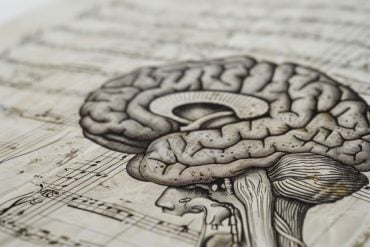Summary: Depressive symptoms and memory decline in older adults are closely linked, each influencing the other. Using 16 years of data from 8,268 adults, researchers found that depression can precede memory decline, and poor memory can lead to increased depressive symptoms.
This bidirectional relationship suggests that addressing one condition may help mitigate the other. The findings emphasize the importance of monitoring and intervening in both depression and memory issues in older adults.
Key Facts:
- Depressive symptoms can precede and predict memory decline in older adults.
- Poor memory can lead to increased depressive symptoms over time.
- Interventions targeting depression may help slow memory decline and vice versa.
Source: UCL
Depressive symptoms are linked to subsequent memory decline in older people, while poorer memory is also linked to an increase in depressive symptoms later on, according to a new study led by researchers at UCL and Brighton and Sussex Medical School.
The study, published in JAMA Network Open, looked at 16 years of longitudinal data from 8,268 adults in England with an average age of 64.
The researchers concluded that depression and memory were closely interrelated, with both seeming to affect each other.

Senior author Dr Dorina Cadar, of the UCL Department of Behavioural Science & Health and Brighton and Sussex Medical School, said: “It is known that depression and poor memory often occur together in older people, but what comes first has been unclear.
“Our study shows that the relationship between depression and poor memory cuts both ways, with depressive symptoms preceding memory decline and memory decline linked to subsequent depressive symptoms.
“It also suggests that interventions to reduce depressive symptoms may help to slow down memory decline.”
Lead author Jiamin Yin, who graduated from UCL and is now a doctoral student at the University of Rochester, New York, said: “These findings underscore the importance of monitoring memory changes in older adults with increasing depressive symptoms to identify memory loss early and prevent further worsening of depressive function.
“Conversely, it is also critical to address depressive symptoms among those with memory decline to protect them from developing depression and memory dysfunction.”
The research team suggested that depression might affect memory due to depression-related changes in the brain. These include neurochemical imbalances (e.g. lower levels of serotonin and dopamine), structural changes in regions involved in memory processing, and disruptions to the brain’s ability to re-organise and form new connections.
The team said that memory impairments also might arise from psychological factors such as rumination – that is, repetitive thinking or dwelling on negative feelings.
On the other hand, people experiencing memory lapses or difficulties in retaining new information can lead to frustration, loss of confidence, and feelings of incompetence, which are common triggers for depressive episodes.
Memory impairment may also disrupt daily functioning and social interactions, leading to social isolation potentially triggering depressive symptoms.
Dr Cadar added: “Depression can cause changes in brain structures, such as the hippocampus, which is critical for memory formation and retrieval. Chronic stress and high levels of cortisol associated with depression can damage neurons in these areas.
“However, a further understanding of mechanisms linking memory decline and depression is crucial for developing targeted interventions aimed at improving mood and slowing cognitive decline in individuals with depression and memory impairment.”
For this study, the researchers looked at data from the English Longitudinal Study of Ageing (ELSA), in which a nationally representative population sample in England answers a wide range of questions every two years.
People who started with higher depressive symptoms were more likely to experience faster memory decline later, while those who started with poorer memory were more likely to experience a later increase in depressive symptoms.
In addition, participants who experienced more of an increase in depressive symptoms during the study were more likely to have a steeper memory decline at the same time, and vice versa – those who had a steeper memory decline were more likely to have a sharper increase in depressive symptoms.
The same pattern was not found for verbal fluency. While less verbal fluency was linked to more depressive symptoms at the start of the study, changes in one did not predict later changes in the other.
The researchers accounted for a range of factors that might have affected the results, such as physical activity and life-limiting illness. As an observational study, the researchers noted, it could not establish causality.
Funding: The study and its authors received support from the National Institute on Aging, the Economic and Social Research Council (ESRC), the National Institute for Health and Research (NIHR), Alzheimer’s Society UK, and Alzheimer’s Research UK.
About this depression and cognitive decline research news
Author: Mark Greaves
Source: UCL
Contact: Mark Greaves – UCL
Image: The image is credited to Neuroscience News
Original Research: Open access.
“Bidirectional relation of depressive symptoms and cognitive function over time” by Dorina Cadar et al. JAMA Network Open
Abstract
Bidirectional relation of depressive symptoms and cognitive function over time
Importance
Cognitive decline and depressive symptoms often co-occur among older adults, and they share several mechanisms. Despite the fact that cognitive dysfunction has been linked to increased depressive symptoms, the directionality of this association remains unclear.
Objective
To examine whether there is a bidirectional association between depressive symptoms and cognitive function in English adults aged 50 years or older throughout a 16-year follow-up period.
Design, Setting, and Participants
This cohort study included a nationally representative sample of community-dwelling English adults aged 50 years or older. The current analysis included 8268 eligible participants with relevant data.
These participants were examined every other year from 2002 and 2003 until 2018 and 2019, resulting in a follow-up period of up to 16 years. Data were analyzed from July to November 2023.
Main Outcomes and Measures
The bivariate dual change score models were used to estimate the multivariable associations between depressive symptoms and cognitive function, which were interchangeably used as exposures and outcomes. Cognitive measures include memory and verbal fluency tests, while the Center for Epidemiologic Studies Depression Scale evaluated depressive symptoms.
Results
The study population of 8268 participants had a mean (SD) age of 64 (10) years at the study baseline, and 4517 participants (55%) were female. Higher depressive symptoms were cross-sectionally associated with poorer memory (β intercept, −0.018; standard error [SE], 0.004; P < .001) and verbal fluency (β intercept, −0.009; SE, 0.004; P = .02) at study baseline.
A steeper linear change in depressive symptoms was associated with an accelerated memory change (β intercept, −0.253; SE, 0.079; P = .001), and a linear change in memory was associated with an acceleration in depressive symptoms over time (β intercept, 0.016; SE, 0.006; P = .005). This bidirectional change was not observed with verbal fluency.
Conclusions and Relevance
In this study, greater depressive symptoms were associated with poorer memory at the study baseline and steeper memory change over time. A gradual linear change in depressive symptoms contributed to accelerated memory loss and vice versa, suggesting that psychological mood and memory performance are intrinsically associated.






